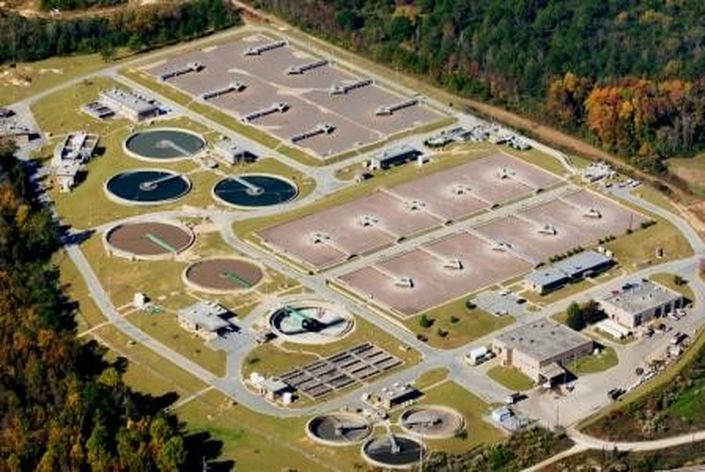
Energy Reduction and Recovery in Wastewater Treatment Plants
Towards Energy Neutral/Energy Positive Status with the Best Practices, Emerging Technologies and Innovative Pathways!
Wastewater treatment is essential to protect public health and the environment. Traditionally the focus of wastewater treatment was to remove various pollutants and nutrients; energy was not in the equation. But now with limited fossil fuel reserve and energy scarcity in the horizon; along with stringent effluent discharge requirements, energy intensive unit processes and rising utility bills, we are forced to rethink wastewater treatment from a different perspective. Now reducing energy consumption during wastewater treatment is not only essential but also becoming crucial.
This new outlook towards wastewater treatment opens up its hidden potential. It is discovered that wastewater is not a waste to get rid of, but a valuable source from where various resources and energy can be recovered. With this new finding, the target of the treatment plants is now to be energy neutral and if possible energy positive. The objective of this course is to teach different wastewater treatment professionals how to achieve this target by enriching them with the knowledge of innovative and emerging technologies and alternative pathways in the area of energy efficiency, energy recovery and energy production in wastewater treatment plants.
A brief description of the lessons and segments of the course is as follows:
Lesson 1- Introduction: A brief introduction of the topic, course objectives and description.
Lesson 2 – Energy Reduction and Energy Efficiency Best Management Practices for wastewater Treatment Plants.
Segment 1 - Strategies of energy reduction by optimizing pump system efficiencies.
Segment 2 - Strategies of energy reduction by optimizing aeration system.
Segment 3 - Strategies of energy reduction by optimizing flows, flexibility, biosolid and disinfection system.
Segment 4 - Strategies of energy reduction by adopting plant wide best management practices.
Lesson 3 – Energy Recovery and Production in Wastewater Treatment Plants featuring emerging technologies, process and pathways as well as case studies of different plants adopting those strategies.
Segment 1- Recovery and production of heat energy.
Segment 2 - Recovery and production of chemical energy.
Segment 3 - Recovery and production of hydraulic energy.
Lesson 4 – Emerging Technologies and Alternative Pathways Towards Energy Neutral and Energy Positive WWTP.
Segment 1- Enhanced primary treatment technologies.
Segment 2 - Low energy biological processes and alternative technologies in nutrient removal.
Segment 3 - Innovative and emerging anaerobic and phototrophic technologies.
Segment 4 - Composition of alternative and innovative treatment trains/pathways towards energy neutral and energy positive status.
Lesson 5 – Case Studies of Pioneer WWTPs. This lesson provides information of different WWTPs worldwide that had already achieved energy positive/ energy neutral status or are close to it.
This course with almost 3 hours of video and 200 pages of Power Point presentations is packed with valuable information for the visionary and outstanding professionals of the future.
The course lessons are available online as video but also can be downloaded as PDF for offline study. The course can be completed at your own pace based on your own convenience and schedule.
Your Instructor

Dr. Luxmy Begum is an Environmental Engineer with over 18 years of process, research, and project management experiences in the environment and renewable energy sector. Dr. Begum received a bachelor degree in civil engineering from the Indian Institute of Technology (IIT), Chennai, India; a master degree in environmental engineering from the Asian Institute of Technology (AIT), Bangkok, Thailand and a Ph.D. Degree in Environmental Engineering from the University of Tokyo, Japan. Dr. Begum was also a recipient of the Canadian Government NSERC Post Doctoral Research Fellowship at Environment Canada on alternative energy production (Biogas and Hydrogen).
As part of her professional experience, Dr. Begum had worked with some major environmental engineering firms and served as a consultant both nationally and internationally. Dr. Begum’s professional experience includes innovative process solution, plant design and upgrade, technology selection and evaluation, equipment selection and procurements as well as project management and execution. She has successfully managed and delivered various environmental and renewable energy projects throughout North America for municipal, provincial, and private clients. Dr. Begum is a Professional Engineer (P. Eng.) in Ontario, Canada and a Project Management Professional (PMP) with the Project Management Institute (PMI). Dr. Begum has authored over fifty (50) international journal articles, conference papers and technical reports.
The courses she is offering here are enriched with valuable information; resulting directly from her extensive research and professional experience on the subject matter.
Course Curriculum
-
StartSegment 1 - Strategies of energy reduction by optimizing pump system efficiencies. (14:07)
-
StartSegment 2 - Strategies of energy reduction by optimizing aeration system. (9:26)
-
StartSegment 3 - Strategies of energy reduction by optimizing flows, flexibility, biosolid and disinfection system. (9:05)
-
StartSegment 4 - Strategies of energy reduction by adopting plant wide best management practices. (8:45)

